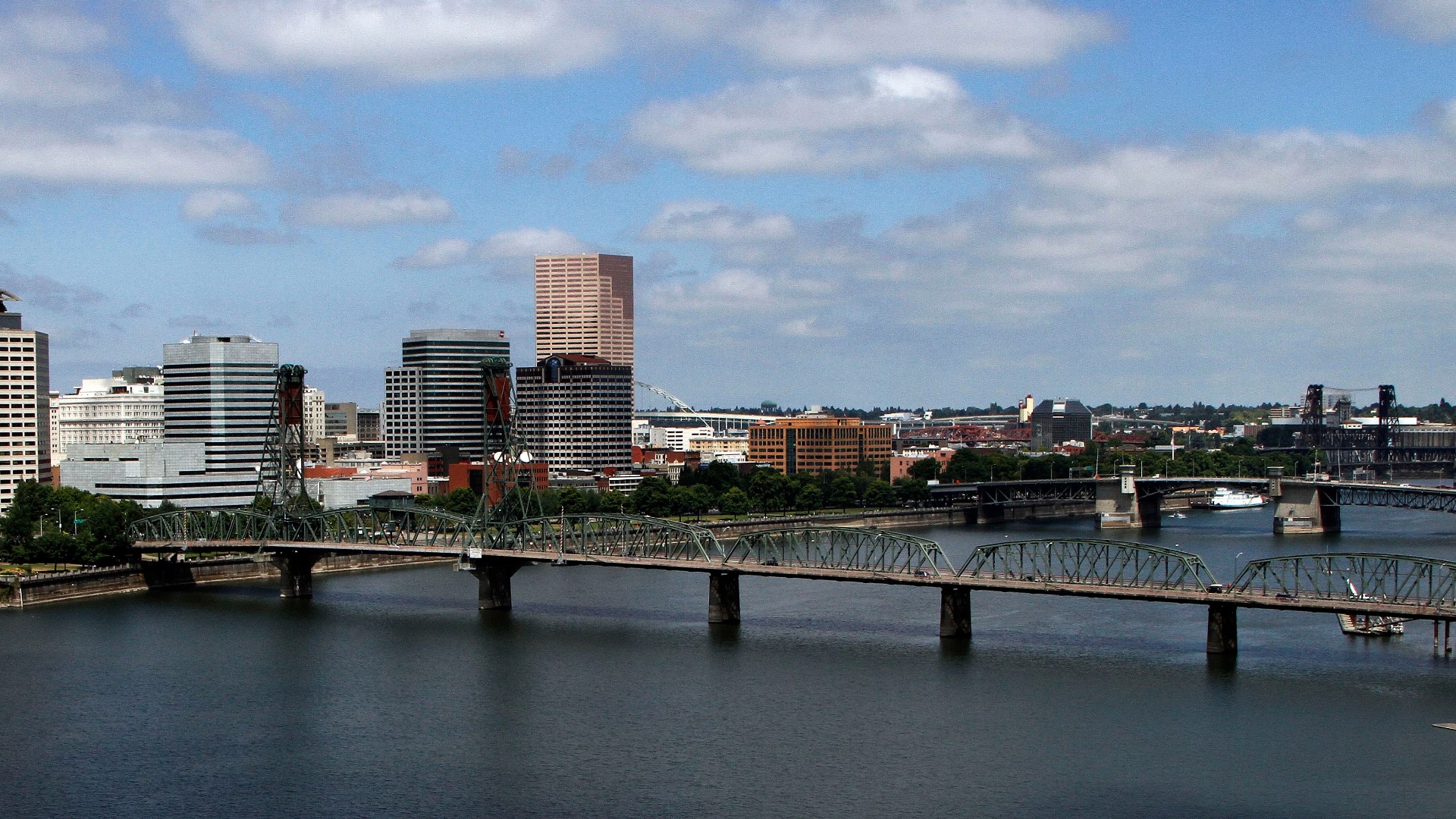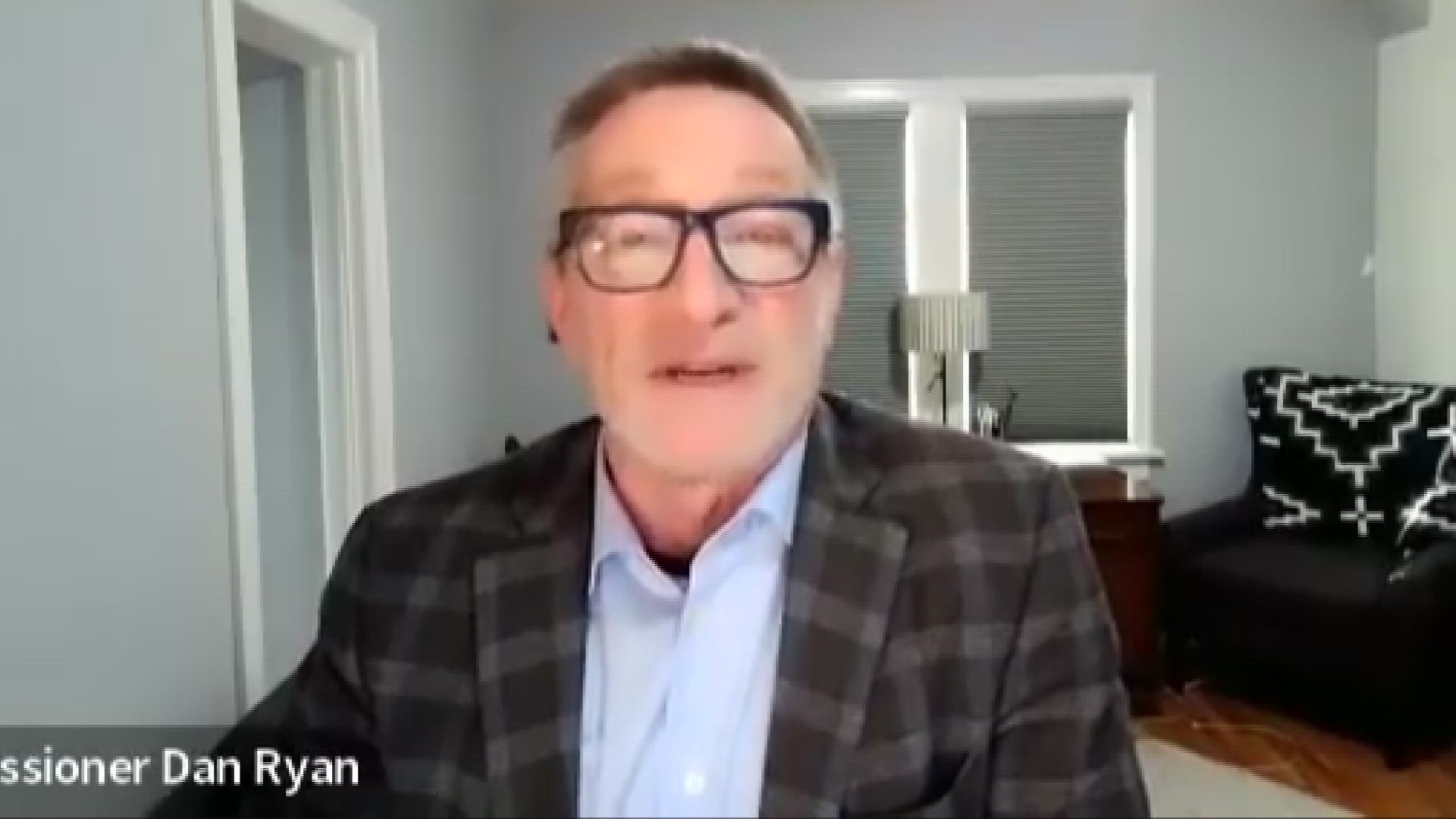Portland leaders announce progress on affordable housing, shift in Safe Rest Village plans
In series of recent announcements, city officials highlighted both points of progress and sources of stagnation in addressing the mounting housing crisis.

In series of press conferences, news releases and social media posts over the past week, city officials in Portland and Vancouver highlighted both points of progress and sources of stagnation when it comes to making a dent in the area’s mounting housing crisis.
The last official count, conducted in 2019, showed 4,015 people were experiencing homelessness in Multnomah County. Of those, an estimated 2,037 met the federal definition of being unsheltered, meaning they physically live on the streets. Volunteers, organized by the county, conducted a new Point-in-Time count last month, a process regularly mandated by the U.S. Department of Housing and Urban Development. The results of that count are expected to be released this summer.
RELATED: Point-in-time count to look at impact of pandemic on Multnomah County's homeless population
Social service providers believe more people have become homeless since the pandemic began.
Affordable housing progress
Late Tuesday morning, Housing Commissioner Dan Ryan posted a roughly 90-second video to Twitter. The tone was celebratory.
"I'm thrilled to announce that three new affordable housing projects have been awarded with the remaining Portland Housing Bond funds," the commissioner said. "This is a critical milestone."
Ryan's post coincided with a release from the city's Housing Bureau, announcing officials have spent what's left of the revenue from a $256 million dollar housing bond, approved by Portland voters in 2016. The latest projects funded by that money will open hundreds of new units in neighborhoods across the city, including Southwest Portland’s Hillsdale neighborhood and Buckman in East Portland.
The bond money, the release said, was originally projected to open 1,300 affordable housing units. Officials managed to stretch it to opening 1,859 units, exceeding their goal by 43%.
"This investment means homes for almost 4,000 Portlanders, as we focus on more housing for families," Ryan said.
The finish line, more than five years after voters approved the funds, came as scheduled, noted Martha Calhoon, public information officer for the Portland Housing Bureau.
"The language in the November 2016 ballot measure committed to expending the funds within 5-7 years, so we are not only on schedule, but we are also delivering 559 more units than originally anticipated from the Bond," Calhoon said in an email. She added the last three projects were "…funded through project reserves we had kept as a buffer for the 10 Bond projects in development, many of which are now nearing completion (thereby freeing up the unused reserves)."
Safe Rest Village plans
The Housing Bureau's release touting the bond expenditures came less than an hour after staff in Ryan's office made an announcement of their own regarding the city's stalled promise to open six organized, sanctioned camps throughout Portland.
"The Safe Rest Villages (SRV) team is excited to announce that Cultivate Initiatives has agreed to serve as the shelter operator for the Village planned for 122nd Ave and East Burnside, at the Menlo Park 'Park & Ride' site," read the first line of a two-page news release. The development checks a necessary, procedural box in the overall plan to open each individual site. Every village, the commissioner has said, will be run by a nonprofit, which will help select residents and enforce on-site rules.
Tuesday’s release did not, though, answer the larger question many Portlanders have about the Safe Rest Villages: When will they open?
When he made the original announcement in June, Ryan vowed to open the villages, funded by $20 million in federal COVID aid, by the end of 2021. That deadline came and went, with the commissioner citing a series of speedbumps. Chief among them: resistance from neighbors of chosen and potential sites, some of whom told KGW they were frustrated by what they deemed to be insufficient communication from the city about its plans.
In December, Ryan's staff said the villages are expected to open in "early 2022."
In the meantime, city officials have vowed to do more to address neighbors' concerns. In a news conference Friday, Mayor Ted Wheeler announced a change in the rules surrounding which homeless camps the city clears and why. He directed Portland's Office of Management and Finance, which oversees that decision making process, to "update your houseless camp removal criteria to ensure no camping is allowed for 150 feet around each Safe Rest Village." The new rule also prioritizes clearing camps on streets between each village and "the nearest transit stop location."
The rule, staff noted, is effective immediately, even though the Safe Rest Villages themselves have yet to open.
Staff have still only selected three of the six sites, and Tuesday’s release included a change in plans for one of them.
"The 2300 block of SW Naito downtown will serve as the new location for the existing Queer Affinity (QA) Village, one of the original C3PO villages that transitioned to a managed oversight model last September," the release read.
In other words, one of the three sites chosen to house a new Safe Rest Village, will instead take in an existing, sanctioned camp, currently located in inner Southeast Portland. The release said city officials hope to move that camp to the Naito site this spring. As a result, the city is now searching for four new Village sites, instead of three.
"The team hopes to share more sites in the near future," the release noted, with no further details as to when that announcement might happen. KGW reached out to the commissioner’s office for further comment but as of Wednesday morning had gotten no response.
Vancouver's announcement
Parallel efforts to open sanctioned, organized tiny house villages have sprung up in cities across the Portland metro area. Officials in Vancouver, tasked with housing a smaller population and faced with markedly less resistance than their Portland counterparts, made an announcement of their own Tuesday: they’re on track to open two more villages this year.
Dubbed "Safe Stay Communities," Vancouver's model houses roughly 40 people each. The city opened its first community in December, placing close to 20 tiny homes on a plot of land along Northeast 112th Avenue.
"It's nice. Power, heat and everything," said Michael Everson, one of the first residents. "It's been nice because it's been cold and stuff."
When it comes to their second community, Vancouver officials said they already have potential locations lined up and will choose one soon. Like their Portland counterparts, they announced Tuesday they’d chosen a nonprofit to run the site: Living Hope Church.
They plan to open the community, the release said, this summer.
"The city’s goal is to have a total of three Safe Stay Communities opened by late summer 2022, providing support to approximately one-quarter of the estimated 500+ people living unsheltered in Vancouver," the release said.


